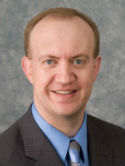Efficacy of speech aid prostheses for acquired defects of the soft palate and velopharyngeal inadequacy - Clinical assessments and cephalometric analysis: A Memorial Sloan-Kettering study Journal Article
| Authors: | Bohle, G. 3rd; Rieger, J.; Huryn, J.; Verbel, D.; Hwang, F.; Zlotolow, I. |
| Article Title: | Efficacy of speech aid prostheses for acquired defects of the soft palate and velopharyngeal inadequacy - Clinical assessments and cephalometric analysis: A Memorial Sloan-Kettering study |
| Abstract: | Background. Restoration of speech after surgical resection for oropharyngeal cancer traditionally includes maxillofacial prosthetic intervention. Relatively few publications with objective speech outcomes exist. The purpose of this study was to evaluate speech outcome relative to the size of the surgical defect, the type of speech prosthesis, and the height and position of the speech bulb in relation to the posterior pharyngeal wall in the nasopharynx. Methods. Fifty-five patients treated at the Memorial Sloan-Kettering Cancer Center Dental Service who underwent ablative cancer therapy were evaluated. All patients were 4 months or longer after surgery and were using a speech aid or obturator prosthesis at the time of the study. Speech samples for percent intelligibility and perceptual evaluation were collected and analyzed, in addition to aeromechanical measurements of palatopharyngeal function. Lateral cephalograms were taken while wearing the prosthesis using a radiopaque marker placed on the posterior aspect of the prosthesis for evaluating the height and position of the prosthesis obturator-speech bulb component. Results. After adjustment for the differences between listeners, findings revealed that as the percentage of resection of palate or tongue increased, the intelligibility of speech decreased. Aeromechanical assessment of speech was the only outcome measure sensitive to the type of speech prosthesis. The position of the speech bulb component, as well as the angle measured, was correlated with the percent intelligibility. The amount of the prosthesis physically contacting the posterior pharyngeal wall was not significantly associated with any of the functional outcome measures. Conclusions. Speech aid and obturator prostheses contribute to a higher percentage of intelligible speech. A difference in intelligibility exists in relationship to the position of the prosthesis and the anterior tubercle of the atlas vertebrae (C1), both statistically and clinically. The position for optimal speech could not be specifically located mathematically (ie, 3 mm or 3 degrees inferior to the anterior tubercle of the atlas vertebrae) from the analysis. Subjective ratings of the efficacy of the obturator-speech bulbs by the clinicians did not correspond to the percent intelligibility. A strong statistical and clinical correlation exists supporting the efficacy of speech bulb-obturator intervention after velopharyngeal insufficiency for improved intelligibility of both words and sentences. © 2005 Wiley Periodicals, Inc. |
| Keywords: | adolescent; adult; treatment outcome; aged; aged, 80 and over; middle aged; cancer surgery; functional assessment; major clinical study; head and neck surgery; postoperative complication; head and neck neoplasms; outcomes research; tracer; prosthesis; tongue; nasopharynx; pharynx; palatal obturators; palate disease; soft palate; velopharyngeal insufficiency; acquired defects of the soft palate; cephalometric angle; maxillofacial prosthodontics; speech aid prosthesis; velopharyngeal inadequacy; cephalometry; palatopharyngeal incompetence; speech intelligibility; maxillofacial prosthesis |
| Journal Title: | Head & Neck |
| Volume: | 27 |
| Issue: | 3 |
| ISSN: | 1043-3074 |
| Publisher: | John Wiley & Sons, Inc. |
| Date Published: | 2005-03-01 |
| Start Page: | 195 |
| End Page: | 207 |
| Language: | English |
| DOI: | 10.1002/hed.10360 |
| PUBMED: | 15700291 |
| PROVIDER: | scopus |
| DOI/URL: | |
| Notes: | --- - "Cited By (since 1996): 15" - "Export Date: 24 October 2012" - "CODEN: HEANE" - "Source: Scopus" |
Altmetric
Citation Impact
BMJ Impact Analytics
Related MSK Work





